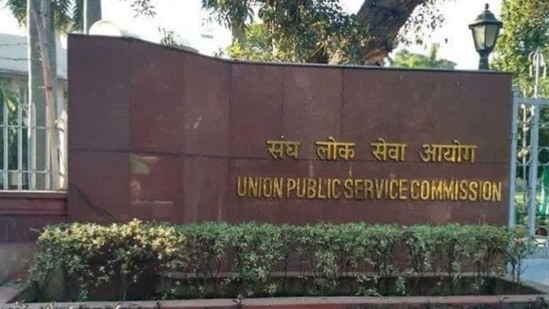Selection and training of IAS officers
This article is authored by Probir Sen, former chairman Air India, New Delhi.
Selections to the IAS and training of officers are both very much in the news.

Going through articles and listening to programmes impelled me to look back, and gather my thoughts on the subject, and, despite the fact that I am as old as President Biden, I am encouraged to lay these before you.
I will start with the fact that officers of the Indian Administrative Service (IAS) are a protected species; Article 311 of the Constitution declares that none of them can be dismissed or removed by an authority subordinate to that by which he or she had been appointed, which in this case was the President of India.
Despite such protection, and the hopes that leaders of the national movement like Vallabhai Patel reposed in the Service, it has failed to live up to expectations; it is also true that one of the main reasons for the decline of Liberalism, was the failure of its institutions to deliver as expected---which includes the all India services, the judiciary, and the media.
To return to the IAS, as a service we stepped too easily into the shoes and spaces occupied by the ICS, something we were never expected to do; we were in fact meant to serve rather than rule.
Thinking back to the years when I served as sub-divisional officer (SDO) and collector, it is now clear to me that there were many critical areas in which I could have intervened, which I chose to almost totally ignore; some examples:
- The failure to empathise with the plight of Army jawans who met me, (something brought home vividly by Irrfan Khan playing the lead role in the film Pan Singh Tomar), by routinely marking their applications to subordinate officers, knowing fully well that these would die a natural death.
- Approving blindly, without inspection, construction of buildings in towns.
- Displaying total indifference to the protection of the environment, of Dalits in cases of atrocities, of the condition of undertrials in prisons and of the power exercised totally arbitrarily by patwaris, resulting in harassment of agriculturists.
- Not serving the poorest of the poor in accordance with Gandhiji’s talisman.
Why did these failures occur, when reasonably well-educated persons joined the Service, with a not immodest measure of idealism?
My conclusions are that these were a result of enormous deficiencies in the manner of selection and training of IAS officers.
Let us begin with the body that selects IAS officers--the Union Public Services Commission (UPSC).
Whereas members of this critical body should have been chosen with great care, for their abilities to make appropriate selections, the postings in this body were regarded by government as minor sinecures, for those who could not be made governors or ambassadors.
Again, the interviews held by the UPSC were not probing exercises for qualities in candidates that would make good officers--- such as the desire to serve, to change, strength of character, courage, probity and intellectual honesty, but were instead occasions for the testing of candidates in the subjects they majored in—history, economics, physics, or mathematics---which had little or no relevance in field postings.
The IAS Academy, which could have remedied this defect, instead concentrated on training probationers to be pukka Sahibs—a cursory glance at The Probationers’ Handbook would suffice to prove this. The stress was on controlling and ruling—we were taught to ride, dress and behave well.
Training, in fact, should have been devoted to bridging the gap between a new recruit and the finished product. The prerequisite for this, was that there should be unanimity about the qualities that constitute a “good officer”, something which exists strongly in the Army, multinationals, and the ICS. In the case of IAS officers, the concept of would, and must, necessarily differ—but it should exist. Once this is there, there should be an emphasis in training of attitudes, values, and the instilling of categorical imperatives.
As a result of the absence of such a concept, we were routinely lectured to on subjects like law, public administration, Indian history, the Constitution --- all of which we could easily have read up ourselves.
Likewise, officers invited to address probationers should not have been those who are merely successful in their careers, but also those who “walked the talk.”
The result was that the young officer, posted in a sub-division or district, more often than not, was highly intelligent, well-qualified, and knowledgeable, but value-neutral—an explosive combination! He/she saw no good reason to align himself/herself with the local politician.
Now even leading multinationals believe that exposure to the liberal arts, engenders values. ICS officers were, therefore, sent for a year to Oxford, not to undertake courses or pass exams, but merely to imbibe values; IAS officers could be sent to good Indian liberal arts universities for the same purpose.
From the Academy probationers went for district trainings. Realising that this was the last opportunity to mould officers, the ICS had a system of posting outstanding officers in training districts -- officers who could nurture young assistant collectors into becoming good officers.
The solutions would therefore lie in:
- Developing unanimity about the qualities that constitute a good officer.
- Choosing the finest persons to man the UPSC, the Academy and training districts.
- Interviews being undertaken as exercises to probe character and values, and not test proficiencies in academic subjects.
- Officers being sent to good liberal arts universities.
- Stress on attitudes and values in training.
- Revival of training districts.
There is urgent need for these practices to be adopted, which will not strain the exchequer, but which would result in a Service the country could rightly be proud of.
This article is authored by Probir Sen, former chairman Air India, New Delhi.





